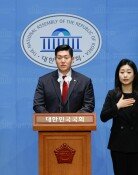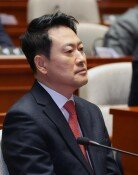Incomplete privatization
Theres no such thing as a free lunch, said the late economist Milton Friedman. The Nobel laureate was considered one of the greatest intellectuals of the second half of the 20th century. He viewed private companies as the basis for economic growth and strongly opposed government intervention, which he said suppresses and distorts the market. He made the theoretical basis for neoliberal policies such as Reaganomics and Thatcherism in the 1980s. His free market theory was criticized by those who said he had "blind faith in the power of the market" and made the government the enemy. July 31 marked the centennial anniversary of his birth. Friedman passed away in 2006.
In his 1999 piece No Third Way to the Market, he blasted incomplete privatization, saying the so-called Third Way such as partial privatization and minimizing government intervention or transition to private monopolies, cannot improve market efficiency because those who oppose state intervention or change will still remain. He cited as an example the U.S. Postal Service, whose privatization plan was canceled due to resistance from employees and the union. Friedman said the inefficiency of political mechanism stems from the tyranny of the status quo that pursues vested interests.
The U.S. Postal Service, which was severely criticized by Friedman, went bankrupt Wednesday by being unable to pay 5.5 billion U.S. dollars in retiree health insurance subsidies for last year. With the development of IT technologies, the volume of mail handled by postal carriers decreased 21 percent from five years ago. Labor costs accounted for 80 percent of the Postal Service`s expenses, which was significantly higher than that of its private counterparts such as UPS (53 percent) and Fedex (32 percent). The Postal Service has recorded a deficit since 2007 and is expected to record a record deficit of 14.1 billion dollars this year. Yet the service cannot even try to diversify its businesses or restructure due to the law and union opposition.
Privatization plans for the Korea Post, the Korea Electric Power Corp., or KEPCO, and Incheon International Airport have been discussed for a while, but no progress has been made. Korea Post eked out a surplus last year by raising 20 won (0.018 cent) in service fees in October last year. It could have recorded a deficit in six years. The electric corporation announced Thursday that it would raise power rates an average of 4.9 percent. The company originally planned in April to implement a hike of 13.1 percent but it lowered the rates due to opposition from the government, with Seoul worrying that rising inflation would burden the people. As a result the company will see a net deficit in the range of 2 trillion won (1.76 billion U.S. dollars) this year. There might be one solution to this according to Friedman. If you are to privatize, do it completely. Theres no such thing as the Third Way.
Editorial Writer Park Yong (parky@donga.com)







